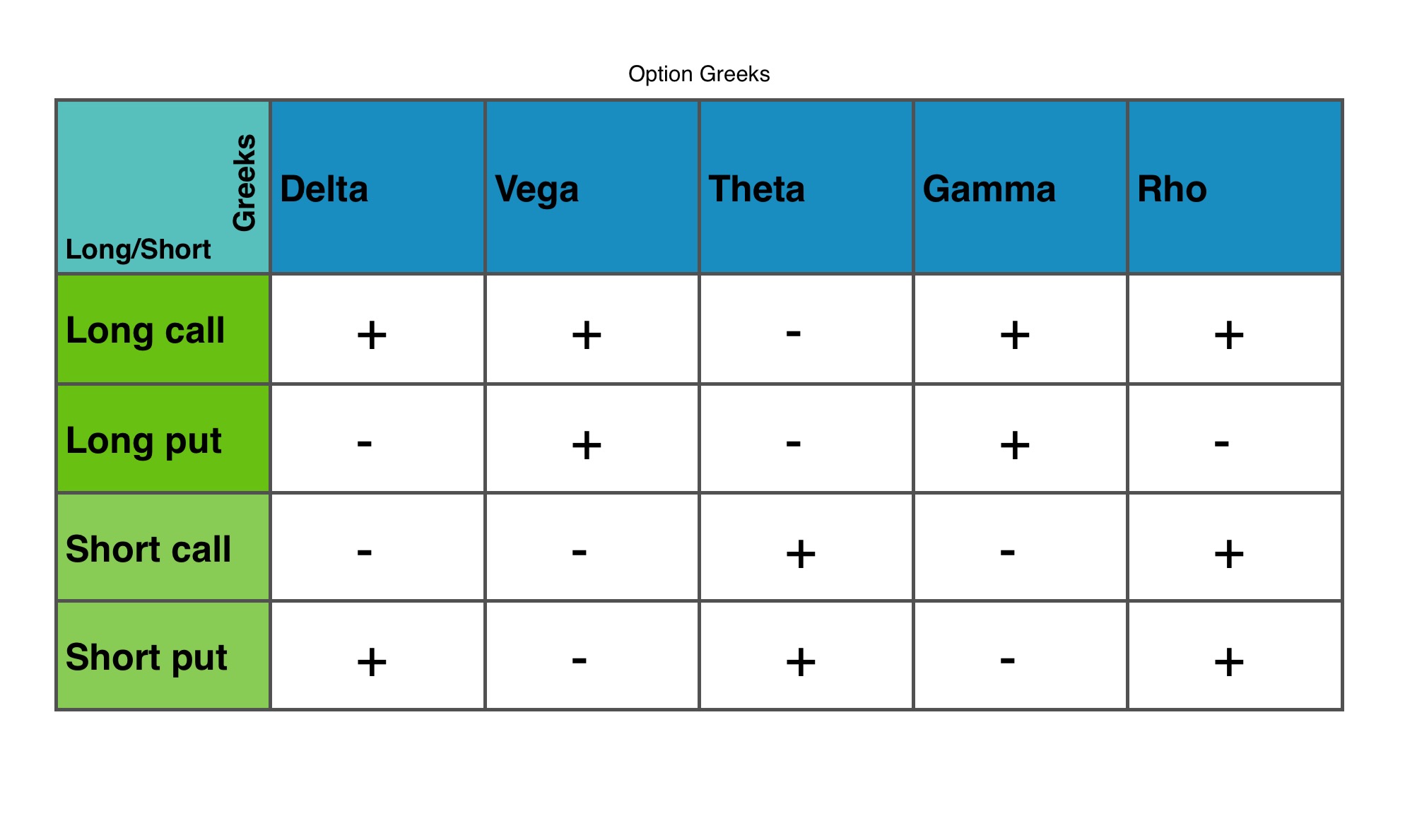The world of options trading can feel like a labyrinth, filled with complex terms and strategies. Just navigating the basic concepts, like calls, puts, and strike prices, can be overwhelming. But for seasoned traders, there’s another layer of complexity that becomes crucial: the Greeks. These seemingly abstract concepts, denoted by letters from the Greek alphabet, can be a trader’s best friend – or worst nightmare. They’re the key to understanding the delicate dance between risk and reward in options trading.

Image: www.youtube.com
My first real foray into options trading felt like jumping into a pool before learning how to swim. I had no grasp of deltas, vegas, or thetas. It wasn’t until I started understanding the Greeks that I truly felt like I was in control. The Greeks act like a map, guiding you through the fluctuating landscape of options prices, helping you predict how they might react to changes in market conditions.
Demystifying the Greeks
The Greeks are a set of mathematical formulas that measure the sensitivity of an option’s price to changes in underlying factors. They’re not just theoretical concepts; they’re essential tools for traders to manage risk and optimize strategies.
Delta
Think of delta as the option’s “exposure” to the underlying asset’s price movement. A delta of 0.5 indicates that for every $1 move in the underlying asset, the option’s price will move by $0.50. A delta of 1 means the option moves in lockstep with the underlying asset. Delta is particularly valuable when trying to predict the potential profit or loss on an options contract.
Theta
Theta is the rate at which an option loses value every day. It’s the “time decay” factor, and it’s important for traders to understand because it can significantly reduce the potential profit of a position over time. If you bought an option, theta represents the premium you lose each day. For those selling options, theta is your friend – it contributes to your earnings as the contract approaches its expiration date.

Image: tradeoptionswithme.com
Gamma
Gamma measures how much the option’s delta will change in response to a shift in the underlying asset’s price. A high gamma indicates that the option’s delta will fluctuate significantly, making it particularly sensitive to even minor price movements. Gamma is essential for understanding the potential volatility of an option. The higher the gamma, the more pronounced the impact of the underlying asset’s price changes on the option’s value.
Vega
Vega measures the option’s sensitivity to changes in implied volatility. Implied volatility is a gauge of market expectations for future price fluctuations. A higher vega indicates that the option is highly sensitive to changes in implied volatility. This can be a double-edged sword. While higher implied volatility can boost the value of an option, it can also lead to significant losses if implied volatility decreases.
Rho
Rho measures the option’s sensitivity to changes in interest rates. This Greek is less impactful than the others for most options strategies.
Mastering the Greeks: A Trader’s Guide
Understanding the Greeks is the first step towards successfully using options. But like any tool, the true power lies in how you wield them. Here are some tips for using the Greeks to your advantage:
1. Tailor Strategies
Each option strategy involves different Greeks. For instance, a covered call strategy leverages the theta decay to earn income, while a straddle strategy benefits from increased implied volatility (vega). Knowing each strategy’s Greeks helps you choose the right approach depending on your objectives and risk tolerance.
2. Control Risk
The Greeks allow you to quantify and manage risk. By understanding the sensitivity of your option to various factors, you can adjust your position size or adjust your strategy to limit potential losses.
3. Capitalize on Market Fluctuations
The Greeks can be used to anticipate market moves. For example, if you expect increased volatility in an underlying asset, you can buy options with a high vega. Conversely, if you anticipate a decline in volatility, you can sell options with a high vega.
Frequently Asked Questions
- Q: Are the Greeks only useful for experienced traders?
A: While the Greeks are often used by advanced traders, even beginners can benefit from a basic understanding. It’s important to at least know what delta and theta mean, and how they impact your trading decisions. - Q: How do I find the Greeks of my options?
A: Most reputable brokers provide real-time quotes of the Greeks alongside the option’s price. - Q: Do the Greeks apply to all options?
A: Yes, all options are influenced by these factors. The strength of the effect varies based on the specific characteristics of the option and the current market conditions. - Q: What’s the best way to learn more about the Greeks?
A: There are many resources online and books dedicated to options trading and the Greeks. Consider starting with a basic guide and then delving into more specialized materials as you gain experience.
The Greeks Options Trading
https://youtube.com/watch?v=KeyZOUAsTyw
The Bottom Line
The Greeks, despite their seemingly complex nature, are an invaluable tool for every options trader. Whether you’re a seasoned veteran or just starting out, understanding the Greeks can elevate your trading process, allowing you to make more informed decisions and improve your chances of success. By mastering them, you’ll unlock a deeper understanding of options pricing, manage risk more effectively, and ultimately, navigate the world of options trading with a newfound confidence.
Are you interested in exploring the world of options trading and the Greeks? Let’s hear your thoughts and any questions you might have! The more we learn, the better equipped we all are to make smart decisions in this dynamic market.






